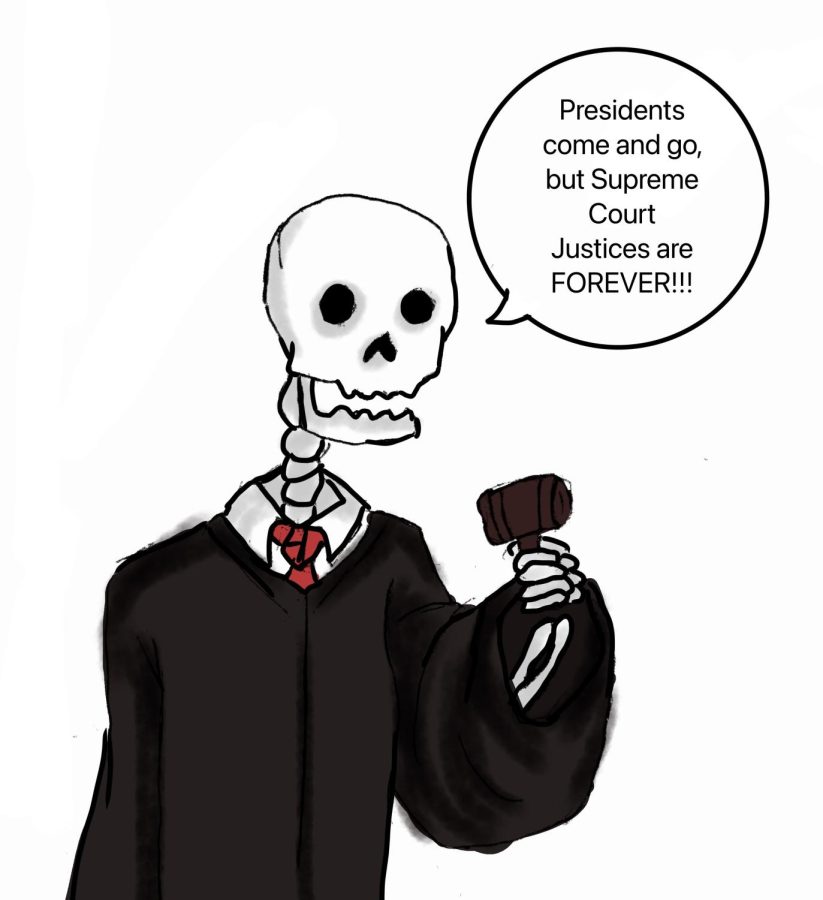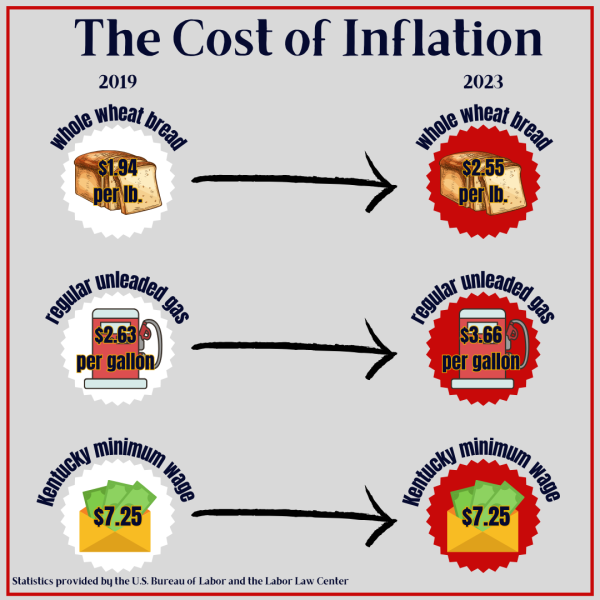Our view: Term limits are necessary for the Supreme Court
November 10, 2022
The Supreme Court has been the highest court in our country since 1789. In the 233 years since its creation, the Court has ruled on several landmark cases and offered opinions on the cases they have ruled on. Most recently, the Dobbs v. Jackson Women’s Health Organization decision was a huge landmark case decided on by the Supreme Court.
Despite its longevity, the Court has only had 116 justices in total. While this may seem like a large number, nine justices serve at a time. In comparison, since the first senators were elected by Pennsylvania voters in 1788, there have been about 78 senators representing the state.
One of the biggest issues with the small number of justices we have had throughout our history is a lack of term limits. The Supreme Court currently has no term limits, meaning justices remain in their position until they either step down or pass away.
Typically, justices spend an average of 16 years in their positions, but without term limits, they may spend much longer. Former Associate Justice Ruth Bader Ginsburg is a prime example of this, since she spent 27 years on the court until her death in 2020, and former Associate Justice Stephen Breyer also served 27 years before his recent retirement.
Term limits would help remedy the decision-making process within our judicial system, particularly within the Supreme Court. One way term limits within the Court would help the judicial process is by ensuring our justices are devoting time and effort to policies that impact everyone.
When justices are secure in their position and know they won’t be leaving until they decide, they aren’t as focused on creating policies that impact everyone positively. Instead, they focus on furthering their own ideologies and beliefs.
Court packing is another issue the Supreme Court can have. Court packing is adding more justices to the Court with the passage of legislation that authorizes. Since nothing currently keeps our Supreme Court from adding more justices, court packing is a definite possibility to skew political decisions.
Packing the Court can become problematic because it can influence political decisions more than it currently does. It can allow for more justices with the same ideologies to influence the decisions made overall by our Supreme Court and end up diluting votes from other justices.
In addition to court packing, we have seen the continuous issue of justices being put in place to favor one party or ideology. Particularly under former President Donald Trump, three justices were recommended and confirmed, but during former President Barack Obama’s time in office, he was unable to get a justice confirmed at all because Senator Mitch McConnell blocked the confirmation.
This is just one example of party favoring in the Supreme Court, but it has been demonstrated time and time again. With the justices confirmed during Trump’s time, they agreed to be unbiased when it came to several issues but have proven their disloyalty to their own statements.
Having term limits would especially help with this issue since justices aren’t solidified for a lifetime. Strategic retirement is a big part of this since many justices can plan their retirement around when a specific president will be in office to confirm a replacement.
Many people, including Breyer, favor 18-year term limits. This would allow for the length of three senate terms and give plenty of time for justices to make effective decisions for our country. It also helps ensure the justices have adequate time to make these decisions without looking for their next job.
The effectiveness of an 18-year term limit would ensure justices don’t abuse their power but also retain enough power to get their job done effectively. One problem with no term limits is the common belief in the overarching power of the Supreme Court because of their lifelong terms and power to change laws for the entire country.
The Court is regarded as the ultimate decision-making body, but term limits would hold a mirror of accountability up to those determining the rights and liberties of those they preside over. Though they are the highest Court, it shouldn’t mean people accept their lifelong authority without question, especially considering the U.S. Constitution makes no mention of lifelong terms for the Court.














































































































